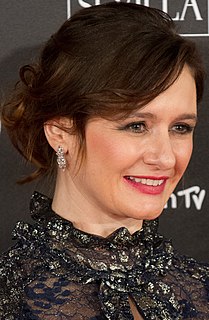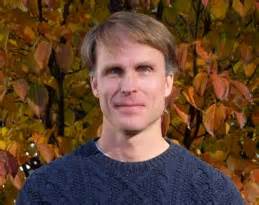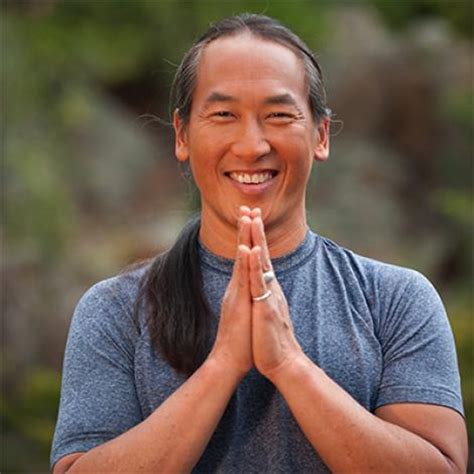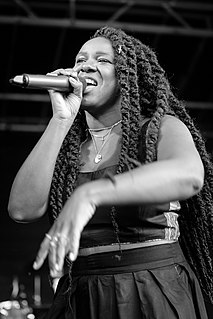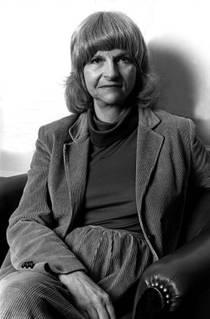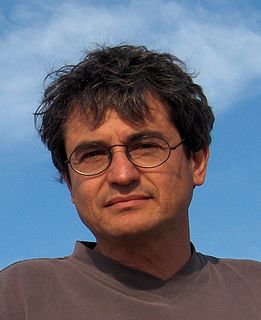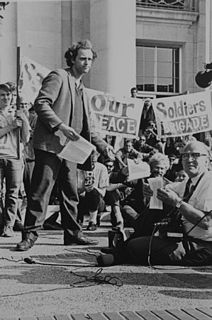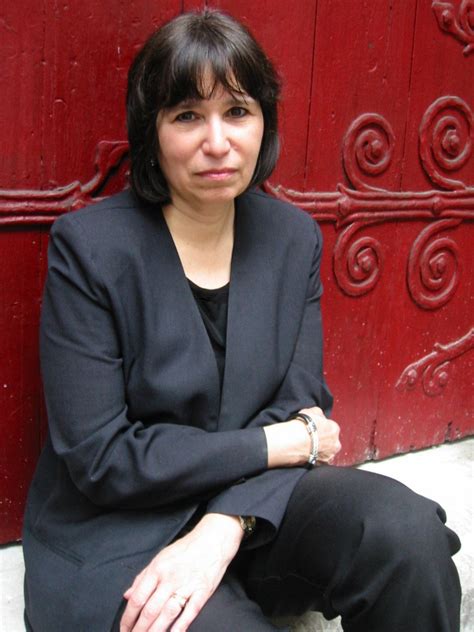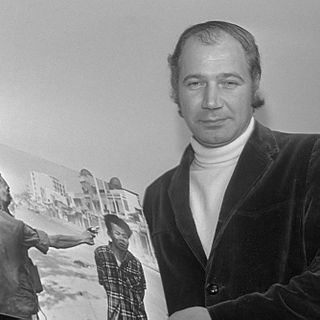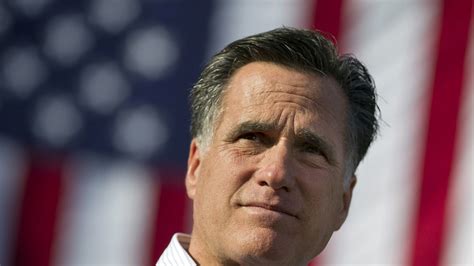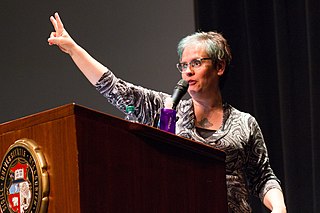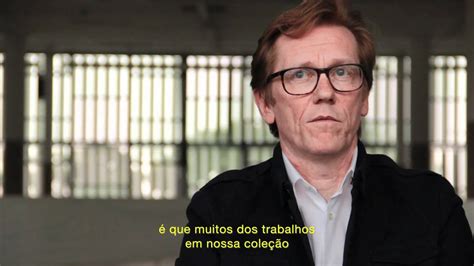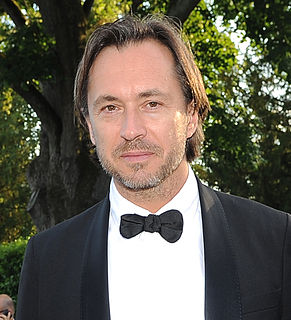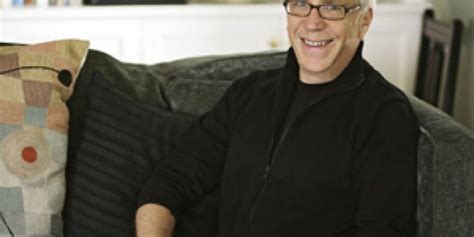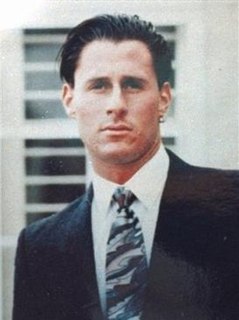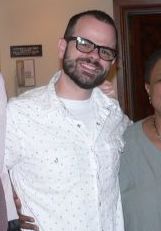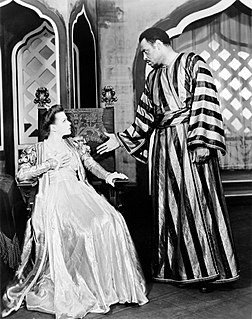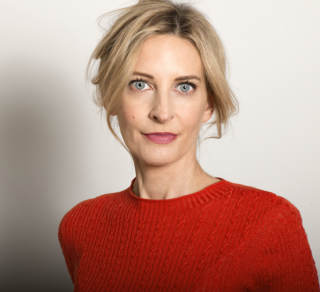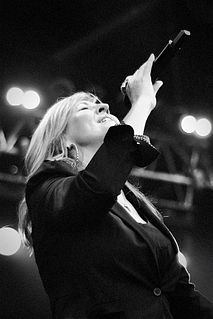Top 659 Questioning Quotes & Sayings - Page 11
Explore popular Questioning quotes.
Last updated on April 16, 2025.
you mean machines are like humans?" I shook my head. "No, not like humans. With machines the feeling is, well, more finite. It doesn't go any further. With humans it's different. The feeling is always changing. Like if you love somebody, the love is always shifting or wavering. It's always questioning or inflating or disappearing or denying or hurting. And the thing is, you can't do anything about it, you can't control it. With my Subaru, it's not so complicated.
Everything we knew condemned us, and our questioning condemned us most of all. Knowledge was the way of our people, and knowledge was dangerous. It was the first thing that freed you and the thing that put you in peril. It was the key to the ten gates. I saw them clearly now, each and every one, the gates that were there for me. Ashes, Bones, Grass, Heart, Stone, Love, Sorrow, Blood, Earth, Sky.
I spent a lot of time with a real detective, a lady detective inspector who was the only female detective inspector in the whole of East London. She and I hung out a lot. She showed me what she did and I spent time with her. So, [she was] a lot of the inspiration for the way I dressed and sometimes the dialogue in those interview scenes where we're cross examining and questioning the youths and trying to get a confession out of them.
With this book in my hands, reading aloud to my friends, questioning them, explaining to them, I was made clearly to understand that I had no friends, that I was alone in the world. Because in not understanding the meaning of the words, neither I nor my friends, one thing became very clear and that was that there were ways of not understanding and that the difference between the non-understanding of one individual and the non-understanding of another created a world of terra firma even more solid than differences of understanding.
...the prominent Egyptian government minister, university professor, and writer Taha Hussein...devoted himself to the study of pre-Islamic Arabian poetry and ended up concluding that much of that body of work had been fabricated well after the establishment of Islam in order to lend outside support to Koranic mythology.... [T]he Iranian journalist and diplomat Ali Dashti...repeatedly took his fellow Muslims to task for not questioning the traditional accounts of Muhammad's life, much of which he called myth-making and miracle-mongering.
Yoga answers a lot of physical problems such as back pain, stress issues, and any kind of joint problems or illnesses. Even more important is the spiritual questioning that comes up around our middle years. We wonder what do I want to hand down to my children, and how do I want to spend my days on this earth? I think yoga begins to help us look at what our passions and our dreams are. And it helps give us the courage once we find passion to actually pursue that!
We too often forget that faith is a matter of questioning and struggle before it becomes one of certitude and peace. You have to doubt and reject everything else in order to believe firmly in Christ, and after you have begun to believe, your faith itself must be tested and purified. Christianity is not merely a set of forgone conclusions. Faith tends to be defeated by the burning presence of God in mystery, and seeks refuge from him, flying to comfortable social forms and safe convictions in which purification is no longer an inner battle but a matter of outward gesture.
Leonardo da Vinci did not take received wisdom - whether from ancient classical thinkers or medieval scholars or from the Bible - without questioning it. And this was the beginning of the scientific method. This is another lesson for our time: that when we have evidence that contradicts a certain belief, we should be willing to change it. I think this made Leonardo, in some ways, a person who better understood the beauty of God's creation than a person who just takes all received wisdom from the Bible on faith.
I believe that the biblical teaching is clear. It always contests political power. It incites to "counterpower," to "positive" criticism, to an irreducible dialogue (like that between king and prophet in Israel), to antistatism, to a decentralizing of the relation, to an extreme relativizing of everything political, to an anti-ideology, to a questioning of all that claims either power or dominion (in other words, of all things political), and finally, if we may use a modern term, to a kind of "anarchism" (so long as we do not relate the term to the anarchist teaching of the nineteenth century).
It is possible to be a fan of reality TV, talent shows and bubblegum pop and still have a brain. You will also see that a great many people know perfectly well how silly and camp and trivial their fandom is. They do not check in their minds when they enter a fan site. Judgement is not necessarily fled to brutish beasts, and men have not quite lost their reason. Which is all a way of questioning whether pop-culture hero worship is really so psychically damaging, so erosive of cognitive faculties, so corrupting of the soul of mankind as we are so often told.
Went up from my feet to my head,
With little chills after it stealing-
And my hands got as numb as the dead.
A moment, and then it was over:
The diamond blazed up in my eyes,
And I saw in the face of my lover
A questioning, strange surprise.
Maybe 'twas the scent of the flowers,
That heavy with fragrance bloomed near,
But I didn't feel natural for hours;
It was odd now, wasn't it, dear?
Write soon to your fortunate Clara
Who has carried the prize away,
And say you'll come on when I marry;
I think it will happen in May.
The reason you go to university is to be taught, is to learn how to think more clearly, to call into question the ideas that you came with and think about whether or not they are the ideas you will always want to hold. A university education at its best is a time of confusion and questioning, a time to learn how to think clearly about the values and principles that guide one's life. Of course, it's also a time to acquire the skills needed for jobs in the "real world," but the part about becoming an adult with ideals and integrity is also important.
Performing is really close to being in studio but performing takes over because being in the studio is two things; the first thing is that it is really beautiful to improvise and jam, but afterwards it becomes hard because it's very rare that a song will come together quickly. Most of the time it's back and forth and trial and error. You start questioning whether the song is good or not. So that can be quite tough.
Forgetting your Self is the greatest injury; all the calamities flow from it. Take care of the most important, the lesser will take care of itself. You do not tidy up a dark room. You open the windows first. Letting in the light makes everything easy. So, let us wait with improving others until we see ourselves as we are/ and have changed. There is no need to turn round and round in endless questioning; find yourself and everything will fall into its proper place.
Tie your heart at night to mine, love, and both will defeat the darkness like twin drums beating in the forest against the heavy wall of wet leaves. Night crossing: black coal of dream that cuts the thread of earthly orbs with the punctuality of a headlong train that pulls cold stone and shadow endlessly. Love, because of it, tie me to a purer movement, to the grip on life that beats in your breast, with the wings of a submerged swan, So that our dream might reply to the sky's questioning stars with one key, one door closed to shadow.
The great subversive works of children's literature suggest that there are other views of human life besides those of the shopping mall and the corporation. They mock current assumptions and express the imaginative, unconventional, noncommercial view of the world in its simplest and purest form. They appeal to the imaginative, questioning, rebellious child within all of us, renew our instinctive energy, and act as a force for change. This is why such literature is worthy of our attention and will endure long after more conventional tales have been forgotten.
Never stop doubting , never stop questioning, never ever assume you have all the answers. Having all the answers kills the question itself, renders it lifeless.....an d you too. Keep looking, keep seeking. Never, ever find it all. Because when you find it all, you deny that there is more. And there is never not more.
[T]he essence of belief is doubt, the essence of reality is questioning. The essence of Time is Flow, not Fix. The essence of faith is the knowledge that all flows and that everything must change. The growing man is Man Alive, and his "philosophy" must grow, must flow, with him. . . . the man too fixed today, unfixed tomorrow - and his body of beliefs is nothing but a series of fixations.
What we men share is the experience of having been raised by women in a culture that stopped our fathers from being close enough to teach us how to be men, in a world in which men were discouraged from talking about our masculinity and questioning its roots and its mystique, in a world that glorified masculinity and gave us impossibly unachievable myths of masculine heroics, but no domestic models to teach us how to do it.
In a world in which we are exposed to more information, more options, more philosophies, more perspectives than ever before, in which we must choose the values by which we will live (rather than unquestioningly follow some tradition for no better reason than that our own parents did), we need to be willing to stand on our own judgment and trust our own intelligence-to look at the world through our own eyes-to chart our course and think through how to achieve the future we want, to commit ourselves to continuous questioning and learning-to be, in a word, self-responsible.
The very foundation of science is to keep the door open to doubt. Precisely because we keep questioning everything, especially our own premises, we are always ready to improve our knowledge. Therefore a good scientist is never ‘certain’. Lack of certainty is precisely what makes conclusions more reliable than the conclusions of those who are certain: because the good scientist will be ready to shift to a different point of view if better elements of evidence, or novel arguments emerge. Therefore certainty is not only something of no use, but is in fact damaging, if we value reliability.
Were I to go down into the market-place, armed with the powers of witchcraft, and take a peasant by the shoulders and whisper to him, 'In your lifetime, have you known peace?' wait for his answer, shake his shoulders and transform him into his father, and ask him the same question, and transform him in his turn to his father, I would never hear the word 'Yes,' if I carried my questioning of the dead back for a thousand years. I would always hear, 'No, there was fear, there were our enemies without, our rulers within, there was prison, there was torture, there was violent death.
Okay," I said, "what's your biggest fear?" As always, he took a second to think about the answer. "Clowns," he said. "Clowns." "Yup." I just looked at him. "What?" he said, glancing over at me. "That is not a real answer," I told him. "Says who?" "Says me. I meant a real fear, like of failure, of death, of regret. Like that. Something that keeps you awake nights, questioning your very existence." He thought for a second. "Clowns.
And God grant that His fire be not quenched! God save us from any smoothing over of these questions in the interests of a hollow pleasantness; God grant that great questions of principle may never rest until they are stettled right! It is out of such times of questioning that great revivals come. God grant that it may be so today! Controversy of the right sort is good; for out of such controversy, as Church history and Scripture alike teach, there comes the salvation of souls.
I grew up outside of Seattle, and have lived here my whole life, and I think that there is a culture of questioning, and guilt. Almost an "anti-ambition." Like, an awareness, and then a subsequent guilt. But sometimes that progressive, liberal guilt is really obnoxious, too - in some ways, I think it's better to just own it. It's weird, that actually, the acknowledgement of privilege or the enactment of guilt can be as obnoxious as anything else. It's a never-ending rabbit hole. We're really in a rabbit hole right now, with this conversation. We're just spiraling down into the void.
The university is well structured, well tooled, to turn out people with all the sharp edges worn off, the well-rounded person. The university is well equipped to produce that sort of person, and this means that the best among the people who enter must for four years wander aimlessly much of the time questioning why they are on campus at all, doubting whether there is any point in what they are doing, and looking toward a very bleak existence afterward in a game in which all of the rules have been made up, which one cannot really amend.
Memory, faith, and the natural world as both witness to the cycle of human life and healer to a questioning heart are at the core of this lovely and lyrical collection of poems. The weather changes, people come and go from cities and towns, babies are born, grow up and depart from their parents’ arms, but still, the countryside and its rituals sustain the people and creatures who know how to read the signs of the seasons. In these pages, Laura Grace Weldon shares those signs with us; her poems are the fruit of a wonderful harvest.
Motive is also important in our quest for knowledge and in the questioning that accompanies it. In commenting on our duty to educate for eternity, Eugene England writes: Teaching or learning - with the Spirit of God simply means (though it is not simple) that we are doing so with an eye single to eternal, not worldly, values, with an eye single to lasting development of the mind and spirit and to useful service to others, especially to aid in their lasting development of mind and spirit.
You might tell me that you have been engaging in some deep questioning and theological rethinking.1 You can no longer live with the faith you inherited from your parents or constructed earlier in your life. As you sort through your dogma and doctrine, you’ve found yourself praying less, less thrilled about worship, scripture, or church attendance. You’ve been so focused on sorting and purging your theological theories that you’ve lost track of the spiritual practices that sustain an actual relationship with God. You may even wonder if such a thing is possible for someone like you.
When you feel perpetually unmotivated, you start questioning your existence in an unhealthy way; everything becomes a pseudo intellectual question you have no interest in responding whatsoever. This whole process becomes your very skin and it does not merely affect you; it actually defines you. So, you see yourself as a shadowy figure unworthy of developing interest, unworthy of wondering about the world - profoundly unworthy in every sense and deeply absent in your very presence.
Strange bent over these things, with a concentration to rival Minervois's own, questioning, criticizing and proposing. Strange and the two engravers spoke French to each other. To Strange's surprize Childermass understood perfectly and even addressed one or twoquestions to Minervois in his own language. Unfortunately, Childermass's French was so strongly accented by his native Yorkshire that Minervois did not understand and asked Strange if Childermass was Dutch.
I saw a man walk into my camera viewfinder from the left. He took a pistol out of his holster and raised it. I had no idea he would shoot. It was common to hold a pistol to the head of prisoners during questioning. So I prepared to make that picture - the threat, the interrogation. But it didn't happen. The man just pulled a pistol out of his holster, raised it to the VC's head and shot him in the temple. I made a picture at the same time. (On his 1968 photograph of the summary street corner execution of prisoner Nguyen Van Lem by South Vietnam's police chief, Lt. Col. Nguyen Ngoc Loan.)
Hillary Clinton really transformed herself into a national security expert. She decided to join the Senate Armed Services Committee, and she became a real military wonk. She was famous for going to every subcommittee hearing and methodically questioning every lieutenant colonel from the Pentagon about defense procurement or selective service benefits. So that's where she really began to carve out and hone this reputation as a hawk that I think has followed her through the secretary of state years and then into the presidential campaign.
Only recently serious research into the relationship between photography and art has taken place. Why has it been so long in coming ? In some respects historical research is analogous with that of science. The bringing to light of factual material and the development of ideas is to a large extent cumulative. But when artists themselves were, from about 1910, beginning to tear down the bastions protecting Art in its ivory tower, questioning the idea of Art with a capital 'A', photography was inevitably to assume a new stature both in the eyes of artists and the public, too.
I'd describe my inner life as constantly vigilant, always ready to flee or respond with violence. I've felt this way since I was a small child. Although it's often quite amusing, it's exhausting at times to live with myself, and when I'm tired and overwhelmed, I do become very depressed. If I'm unable to work for too long, I start questioning my purpose on this earth and whether or not I deserve to live. When I look at other people, I get the sense that they live with themselves much more gracefully.
In the wake of 9/11, my meetings with Arab and Pakistani Americans, for example, have a more urgent quality, for the stories of detentions and FBI questioning and hard stares from neighbors have shaken their sense of security and belonging. They have been reminded that the history of immigration in this country has a dark underbelly; they need specific reassurances that their citizenship really means something, that America has learned the right lessons from the Japanese internments during World War II, and that I will stand with them should the political winds shift in an ugly direction.
And to me, that is the greatest danger, that people start questioning basic facts and start not understanding the importance of democratic institutions such as the free press. I mean, to call the press the enemy is dangerous and just remarkably bizarre. The press is the only profession protected in the Constitution because of how important the framers viewed the press. But in authoritarian regimes, they control the press. And to me, going down an authoritarian path is the greatest danger that we face as a republic.
Religion is a belief in invisible beings, inaudible voices, intangible entities, undetectable forces, and events and judgments that happen after we die. It therefore has no reality check. And it is therefore uniquely armored against criticism, questioning, and self-correction. It is uniquely armored against anything that might stop it from spinning into extreme absurdity, extreme denial of reality… and extreme, grotesque immorality.
These artists all have some kind of message to the public. These messages can be quite personal, maybe about their own existential situation, and it can be about suffering, it can be about questioning of one's existence and so on. They are all telling us very genuine stories, which are touching us in different ways and they are enlightening in different ways. But it's not only the stories themselves, but it's how it is done - that creates the impact of the story. It is not what is said but how it is said. I don't think you can dissociate the content from the form.
I do feel that the world is entering into a period of the incredible period of reflection and introspection. A lot of people are questioning the future, and I can't help but think that's a positive thing. I'm not sure about the art world, but the design world may be able to offer some solutions. Design is about troubleshooting. As a designer, I ultimately feel like a gun for hire. Companies hire me because they've got a problem. That's kind of what it boils down to. And I think this is a moment in our history where we need different solutions.
Religions, of course, have their own demanding intellectual traditions, as Jesuits and Talmudic scholars might attest.... But, in its less rigorous, popular forms, religion is about as intellectually challenging as the average self-help book. (Like personal development literature, mass market books about spirituality and religion celebrate emotionalism and denigrate reason. They elevate the "truths" of myths and parables over empiricism.) In its more authoritarian forms, religion punishes questioning and rewards gullibility. Faith is not a function of stupidity but a frequent cause of it.
Remodeling defies the principles of modern commerce. You shell out great sums of money to people over whom you have no authority or power, yet these same people are constantly insinuating that you're cheap. (It reminded me of medicine, another area where you shell out great sums of money to people over whom you have no authority or power, who make you feel guilty for questioning a bill.) Construction workers are the blue-collar version of the snooty salespeople at Gucci who make $8 an hour but look down on you if you balk at a $400 alligator wallet.
Don't think about why you question, simply don't stop questioning. Don't worry about what you can't answer, and don't try to explain what you can't know. Curiosity is its own reason. Aren't you in awe when you contemplate the mysteries of eternity, of life, of the marvelous structure behind reality? And this is the miracle of the human mind - to use its constructions, concepts, and formulas as tools to explain what man sees, feels and touches. Try to comprehend a little more each day. Have holy curiosity.
In a very real way, one writes a story to find out what happens in it. Before it is written it sits in the mind like a piece of overheard gossip or a bit of intriguing tattle. The story process is like taking up such a piece of gossip, hunting down the people actually involved, questioning them, finding out what really occurred, and visiting pertinent locations. As with gossip, you can't be too surprised if important things turn up that were left out of the first-heard version entirely; or if points initially made much of turn out to have been distorted, or simply not to have happened at all.
The adolescent frequently supposes that she is breaking out of the confines of her mundane, schoolgirl existence simply in order to break rules and defy authority. . . . She rids herself of the "oughts" and "musts" that convert every minor infraction into a sin of omission or commission. It certainly does not occur to her or to her family that by questioning the moral standards she erected as a child she is taking the first steps in her journey toward a firmer, more reasonable, less harsh, more ethical form of conscience.
As a Jew and a psychologist, I understand the stress that religious communities feel in connection with questioning of circumcision... I raise these questions out of deep caring and compassion, for our community generally, and our male infants in particular. We are inflicting, generally, unrecognized harm with circumcision, and the perpetuation of this harm is far greater a concern than the discomfort that comes from confronting the advisability of this practice. Many Jews who do not circumcise in North America, South America, Europe, and Israel support this view.
Instead of replying, Alec reached down and took Magnus's hands. Magnus let Alec pull him to his feet, a questioning look in his eyes. Before he could say anything, Alec drew him closer and kissed him. Magnus made a soft, pleased sound, and gripped the back of Alec's shirt, rucking it up, his fingers cool on Alec's spine. Alec leaned into him, pinning Magnus between the table and his own body. Not that Magnus seemed to mind. 'Come on,' Alec said against Magnus's ear. 'It's late. Let's go to bed.
My assessment of Julian Assange is a professional one, really, of what he's managed to achieve, and the idea that he came up with, which set the world alight and continues to inspire others like Snowden [NSA leaker Edward Snowden], about the secret goings-on that are done in our name with our tax dollars on behalf of big business or politics. He launched the revolutionary idea that citizens can start to claim back a paradigm for questioning power structures and those in authority through an anonymous, whistle-blowing website.
I am definitely questioning the atonement and trying to discover how we can see it in a different way. We've got this image of God who needs some sort of flesh, some sort of blood, that needs some sort of vengeance to pay for sin. My experience of a loving God who's asked me to love my enemies - this isn't a God that demands something before you are accepted. I think Jesus died because Jesus was inclusive. God is inclusive. I think that the idea of God somehow being separated from us was more man's idea.
Remain in wonder if you want the mysteries to open up for you. Mysteries never open up for those who go on questioning. Questioners sooner or later end up in a library. Questioners sooner or later end up with scriptures, because scriptures are full of answers. And answers are dangerous, they kill your wonder.
Since the time of the ancient Greeks a democracy has depended on its philosophers and creative artists. It can only flourish by continuous probing, prodding, and questioning of the social conditions under which man exists and tries to better himself. One of the first moves of a dictatorship is to stifle the artists and thinkers who have the ability to stir up dissent from any prescribed dogma which might enslave them. Because the artist can arouse the curiosity and conscience of his community, he becomes a threat to those who have taken power.
The most valuable thing a teacher can impart to children is not knowledge and understanding per se but a longing for knowledge and understanding, and an appreciation for intellectual values, whether they be artistic, scientific, or moral. It is the supreme art of the teacher to awaken joy in creative expression and knowledge. Most teachers waste their time by asking questions that are intended to discover what a pupil does not know, whereas the true art of questioning is to discover what the pupil does know or is capable of knowing.
On the Upper East Side, women are prisoners to the ideology of intensive motherhood, which is that you should be enriching your child's well-being on every measure you possibly can at every moment. So when your kid is sitting down playing with Legos, intensive motherhood dictates that you should be engaging with him or her somehow, praising, questioning, making it into a learning opportunity. It's not enough to just tell your child, "Do your homework." It's not enough to help with the homework. You go to the school and learn how they do math, so that you can tutor your child in math.
You have a certain objectivity, as a member of the audience, and you can come away maybe being provoked into a certain discourse or a certain arena of questioning, regarding how you would deal with things that your character has to deal with. Whereas when you're doing a film, once you start asking, "What would I do?," you're getting the distance greater between yourself and the character, or you're bringing the character to you, which I think is self-serving, in the wrong way. The idea is to bring yourself to the character.
The Quran mentions the story of Moses and Khidr [a prophet mentioned in the Quran who guided Moses on a revelatory journey], a famous story, in which Moses represents sort of the external understanding of the religion and Khidr represents the inner spiritual understanding of the religion. Moses went on a journey with Khidr and Khidr said, "I will not accept you unless you stop questioning things," which from an external point of view seems strange, but inwardly is very meaningful. This is exactly the question of spiritual guidance.
God is okay. He's got big shoulders. He's okay with our - with our questioning and our - you know, I think the bigger the question, the bigger the answer, you know? It may be sickness, it may be loss, it may be disappointment, but sometimes you feel like heaven's silent, that "God, how-how can this be love?" But actually, if you go back to the Word, you know, it just underpins everything.
Learning to be flexible in values takes a very long time...Of course I felt a little uncomfortable during questioning the concept of God, but then reading about the history and evolution of Gods. There were many different Gods: the God of war, the God of peace, the God of love, which was more like the people that invented them. They behaved, they got angry, they made sacrifices, they created floods when they didn't like the way things are going. This didn't come through as superior intelligence.
When you're no longer seeing yourself, in some ways. You're as close to being as you can be.I suppose that's consistent with the moment that the mind actually turns off, and is no longer questioning what you're doing. When the questions stop, that's when the real acting takes over. And trying to get to the point where the questions stop, "Would I do this? How do I feel about that as a character?" When those stop, and it's just doing X, Y, and zed, because that's what you'd do as this character, because you're inside this character somehow - that's when it really kicks off.
In science we see progress. In art there is no progress. In art the questions have always been the same. From the beginning of time till now, we are always asking the same questions. There are very few. We are looking for God, we are asking why we die, we are contemplating sex and the beauty of nature. The only thing that changes is that, in each period of questioning, we speak with the language of our time.


